President Tokayev’s visit to UAE: focus on increased business and investment ties

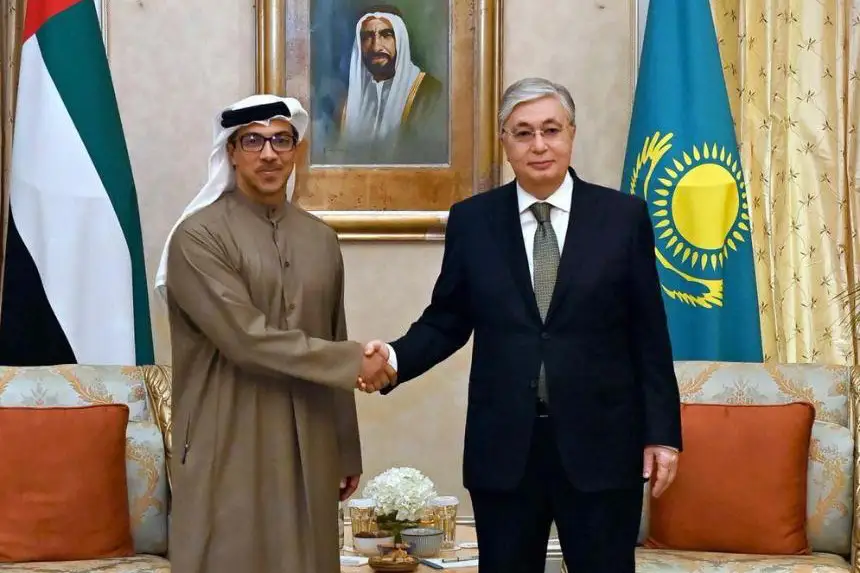
Photo:akorda.kz
The visit to the UAE is the first foreign visit of President Tokayev in 2023.
«The Emirates is our leading and reliable strategic partner in the Middle East and Arab world. Your country has supported Kazakhstan since the first days of independence. Kazakh people will never forget this. The United Arab Emirates has significantly contributed to our capital's development and improvement. This is evidence of true friendship,» said Tokayev during extended talks with Sheikh Mohamed bin Zayed Al Nahyan.
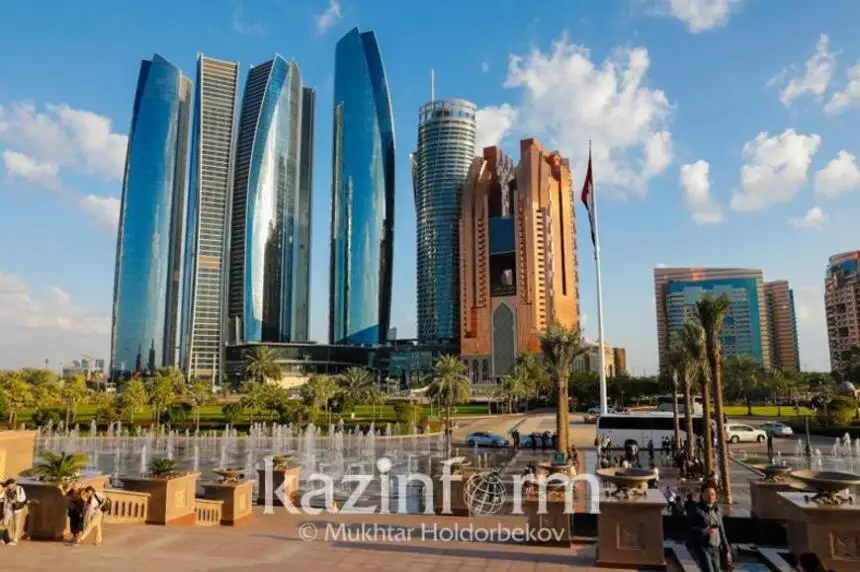
Last year marked the 30th anniversary of the establishment of diplomatic relations between Kazakhstan and the UAE. Tokayev noted that the two countries have significantly strengthened cooperation in various fields and established a meaningful and open political dialogue.
«The relations between the two countries have had many achievements in various fields, but the time has come to give a new impetus to cooperation between the two states. I take this opportunity to express my gratitude to you,» he said.
UAE President Sheikh Mohammed bin Zayed Al Nahyan agreed with Tokayev on a high level of bilateral cooperation and expressed his commitment to expanding political dialogue and economic ties with Kazakhstan.
Investment and business relations
Attending the investment roundtable on January 17, Tokayev said the partnership between Kazakhstan and the United Arab Emirates rests on two pillars - huge economic potential and business interests, on the one hand, and mutual respect and shared values, on the other.
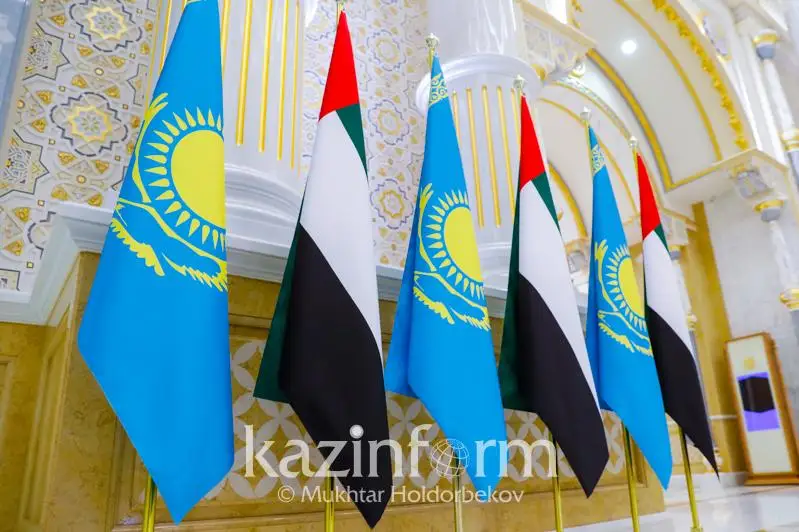
The UAE is Kazakhstan’s key regional trade and economic partner. Tokayev said the UAE has invested about $3 billion in Kazakhstan and Kazakhstan has invested over a billion dollars in the Emirates. By the end of 2022, the bilateral trade turnover reached $600 million.
«This is a great achievement. But there is still much to strive for,» said Tokayev after the two leaders agreed to bring trade turnover to $1 billion.
According to the data from the QazTrade Center of Trade Policy Development, as of January 1, 2023, there are 273 companies in Kazakhstan with the participation of legal entities of the UAE, including 252 small businesses.
Between January and September last year, UAE invested $146.6 million. Exports from Kazakhstan to the UAE amounted to $555.5 million, decreasing by 8 percent compared to the same period in 2021, and imports reached $54.8 billion, up by 22 percent compared to the same period in 2021.
Kazakhstan’s main exports to UAE are crude oil - $249.6 million (44.9 percent share), copper and copper cathodes - $235.3 million (42.4 percent), mutton or goat meat - $12.2 million (2.2 percent), hot rolled flat steel - $10.5 million (1.9 percent), other ferrous metal products - $8.2 million (1.5 percent).
Kazakhstan’s export potential to the UAE is estimated at 100 types of goods worth at least $336.5 million.

What are the promising areas?
According to Kassym-Jomart Tokayev, agriculture, mining and metallurgy, carbon neutrality as both Kazakhstan and the UAE set carbon neutrality goals by 2060 and 2050, respectively, and transport and logistics are promising areas where the potential is yet untapped.
Tokayev said Kazakhstan is ready and willing to produce and supply organic agricultural products to the UAE market. He invited companies already in Kazakhstan and other Emirati companies to invest in the food industry.
He also spoke about Kazakhstan’s huge mineral resources that can offer ample opportunities for investors.
«We are among the top ten countries in the world in terms of explored reserves of critical materials and rare-earth metals. We are the largest producer of uranium, titanium, chromium and other materials. Many other deposits have yet to be explored. Given major technological shifts, the importance of critical materials will grow. We need investment and expertise to realize our full potential in this area,» said Tokayev, emphasizing tax preferences for new strategic projects in mining and metallurgy starting in 2023.
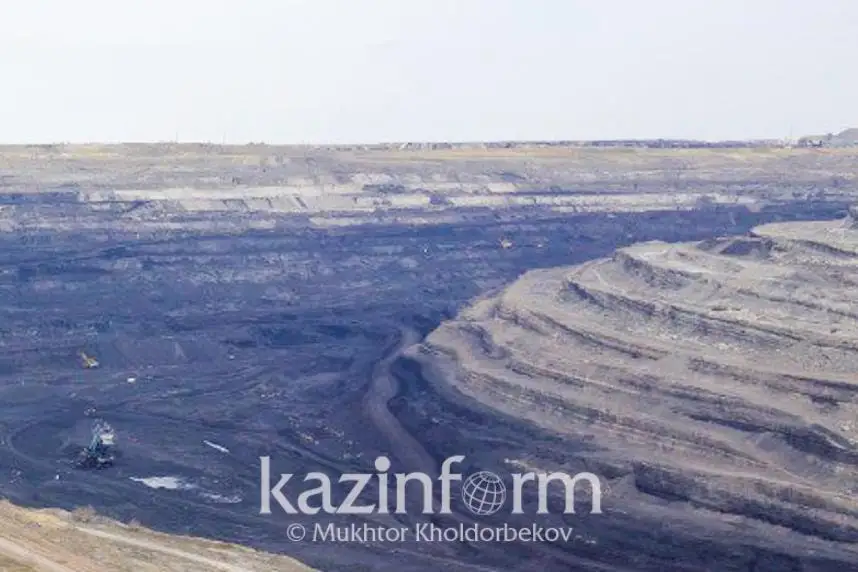
Achieving carbon neutrality is a common goal for Kazakhstan and the UAE. Kazakhstan intends to become carbon neutral by 2060, while the UAE has a net zero commitment by 2050. For UAE, however, the goal might seem elusive because, along with other Gulf hydrocarbon producers, it remains one of the biggest emitters of carbon dioxide per capita.
«Our country was the first in the Commonwealth of Independent States region to ratify the Paris Agreement and develop a national strategy to achieve carbon neutrality. By 2035, we plan to introduce 11 gigawatts of clean energy and completely transform the energy sector. In this regard, we welcome Masdar's intention to build a large wind farm in Kazakhstan. Renewable energy projects with storage capacity are our priority. We hope that this is just the beginning. Given the impressive results of Emirati companies in the development of green hydrogen, I would also encourage you to explore similar opportunities in Kazakhstan,» Tokayev said.

In terms of transport and logistics, Tokayev invited the Emirati companies to tap into the enormous potential that both Kazakhstan and Central Asia have to offer.
Supply chain disruptions caused by geopolitical tensions have increased the importance of logistics and transportation networks and projects. Kazakhstan opens direct access to markets with more than a billion consumers, including the Eurasian Economic Union, Central Asia and China.
«Central Asia is a large and dynamic region with high growth rates and a great future. We plan to build several cross-border trade and logistics centers to strengthen our trade and connections in Central Asia. Kazakhstan is also a large country that needs quality roads. We are working to create a Digital Transport Corridor with our neighbors and the European Union. We aim to remove all existing barriers and reliably connect East and West, North and South. We believe Emirati companies can benefit from this growth and stronger connectivity. That is why I fully support cooperation with Abu Dhabi Ports in building maritime and port infrastructure in our country,» said Tokayev.

Tokayev also stressed the country’s efforts to build a solid financial market in Kazakhstan, referring to the Astana International Financial Centre. The AIFC has 1,700 companies from 64 countries. It also has a legal system based on international common law, an independent court and arbitration center, tax benefits and a special labor regime.
Abu Dhabi Sustainable Development Week summit
At the Abu Dhabi Sustainable Development Week summit, a global initiative promoted by the UAE to support international sustainable development efforts, Tokayev called for greater efforts to address climate change and promote sustainable development for a cleaner and greener future.

Photo:shutterstock.com
«Unfortunately for all of us, climate change has been relegated to the back burner with increasing geopolitical instability and energy insecurity. Because of rising global temperatures, the yields of the most important crops, which provide more than 66 percent of the calories consumed worldwide, could decline significantly. There is also a serious risk of a shortage of fresh water,» said Tokayev, who attended the summit along with Sheikh Mohammed bin Zayed Al Nahyan, President of South Korea Yoon Suk Yeol, President of Azerbaijan Ilham Aliyev, President of Angola Joao Lorenzo, Egyptian Foreign Minister and President of the 27th session of the UN Climate Change Conference COP27 Samih Shukri.
The Kazakh leader cited a UN report that stated that by 2050, more than 5 billion people will be at risk of being affected by climate change.

Photo: akorda.kz
«Ultimately, this could undermine the world's food supply and energy, urban and environmental systems. All of this requires urgent and effective action, and not just political. Unprecedented investments are needed to save the planet,» said Tokayev.
However, measures to fight climate change should not be at the expense of development or modernization.
He focused on what Kazakhstan is doing to address climate change, given that almost 70 percent of electricity in Kazakhstan is generated by coal.
According to him, the new Environmental Code stimulates industrial corporations for the large-scale energy transition.
«The full amount of companies' eligible investments in environmental modernization will be deducted from environmental payments to the budget. Regarding regulations, this year, we are finalizing a handbook of industrial standards, the Best Available Techniques (BAT), for all major industries. At the next stage, the 50 largest corporations, which account for 80 percent of environmental pollution, will have to move to these standards,» said the Kazakh President.
Kazakhstan’s carbon neutrality strategy defines the best ways to achieve the indicators of contribution to combating climate change, determined at the national level.
«The national system of quotas and trading in greenhouse gas emissions has already proven to be an effective mechanism for stimulating emission reductions and developing energy efficiency technology. Our common goal is to close the gap between the national and European emissions trading systems. All these measures will ensure that the commitments of the Paris Agreement are fulfilled by 2030,» said Tokayev.
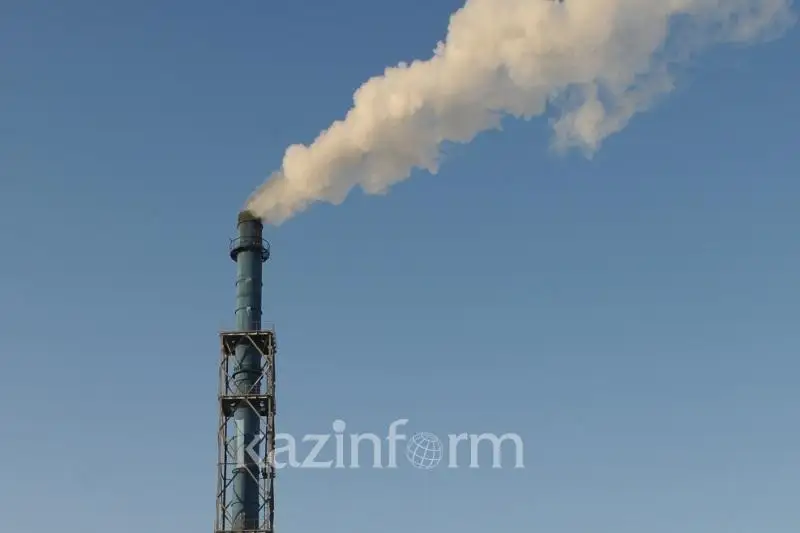
Abundant resources can help Kazakhstan deliver its renewable and alternative energy goals. Tokayev is firm that Kazakhstan can become a leader in this sector, able to contribute to the global effort to protect the climate.
«We are improving the regulatory framework to create the most attractive conditions for investors. According to our plans, by 2035, Kazakhstan will have 6.5 GW of renewable energy resources. Another promising field is green hydrogen. International experts believe that our country could become one of the ten largest hydrogen exporters,» he said.
Food security was another important topic raised by Tokayev. He added that Kazakhstan, the world's seventh-largest grain producer, plans to use its agricultural potential to protect global food security.
«We are actively cooperating with the World Food Program and the Food and Agriculture Organization of the United Nations on the supply of wheat flour as humanitarian aid to the Afghan people. In this context, I urge you to actively cooperate with the Islamic Organization for Food Security (IOFS) to help developing countries ensure food security,» said Tokayev.
What documents were signed?
Tokayev welcomed the plans of the Abu Dhabi Ports Group to develop the maritime and port infrastructure on the Caspian Sea and the signing of a strategic partnership agreement with KazMunayGas national company.
Masdar, UAE’s clean energy developer, signed an agreement on cooperation with the Kazakh Ministry of Energy of Kazakhstan, and Kazakhstan Investment Development Fund to implement a joint project to build a 1 GW wind power plant in Turkistan and Zhambyl regions.
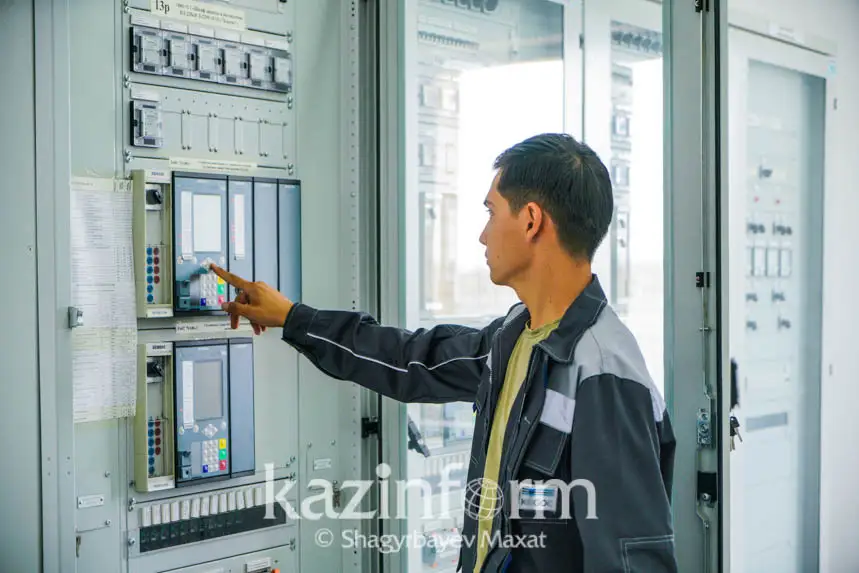
Among other documents is a joint declaration between the governments of Kazakhstan and UAE on the establishment of strategic investment projects, memorandums of understanding between the Kazakh Ministry of Industry and Infrastructure Development and the General Civil Aviation Authority of the UAE, between the Kazakh Ministry of Health and the UAE Ministry of Health and Prevention, between the Institute of Diplomacy of the Kazakh Academy of Public Administration and the Anwar Gargash Diplomatic Academy.
Tokayev’s visit to UAE sets the tone for 2023 after the last year witnessed a highly packed diplomatic schedule, with world leaders arriving in Astana for official visits, multiple summits and conferences. This, in turn, reaffirms Kazakhstan’s firm constructive and multi-vector foreign policy that helps the country navigate through the rough time of rising confrontations elsewhere in the world.
Written by Assel Satubaldina